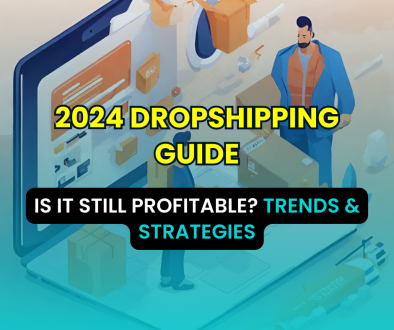Best Website Platforms for E-commerce

As online businesses become more and more popular, having an online presence has become even more important to companies wanting to serve customers all around the world. When it comes to e-commerce businesses, having an easy-to-use online store is vital to running a successful marketplace website.
There are so many great choices when it comes to building an online e-commerce website or store. Each platform has their advantages and disadvantages, below we will dive into four of the top performers, so you can decide which platform is best for your e-commerce store.
WooCommerce & Wordpress:
WooCommerce is a popular e-commerce plugin available to those who have a Wordpress website. WooCommerce will allow you to sell products online (physical or digital), manage your stock and inventory, as well as process online payments for your business’s transactions with consumers.
WooCommerce’s Advantages:
- WooCommerce is flexible: This platform can handle a variety of product ranges, from digital to physical. And it provides you with access to all sorts of shipping and payment processing solutions.
- WooCommerce is low on costs: Because WooCommerce is open-source, it’s also free to use. The only elements you will have to pay for are premium add-ons, to give your e-commerce store more functionality, and website hosting to keep your Wordpress site online.
- WooCommerce has low limitations: Wordpress allows you to integrate a great number of plugins with WooCommerce. Meaning your site won’t have the limitations that other platforms may face.
- WooCommerce is customisable: Wordpress and certain theme builders allows your e-commerce site to be customised endlessly. So you can present your products and brand in any way you see fit.
WooCommerce’s Disadvantages:
- WooCommerce can be technical: Wordpress and WooCommerce can be very user friendly, but when you want to customise your e-commerce website, you may need some technical knowledge to overcome certain hurdles.
- WooCommerce is difficult to scale: Wordpress paired with Woocommerce can be tricky to scale, as they can take some time to manage overall. WooCommerce is more suited to smaller or medium sized e-commerce operations.

Shopify Stores:
Shopify, like WooCommerce, is an extremely popular e-commerce platform. Shopify stores are hosted by Shopify themselves and are very user friendly. Although they allow less customisation than WooCommerce, a lot of the technical aspects of your e-commerce store are already taken care of. This will allow you to focus more on running your online store than stressing about its technical functionality.
Shopify’s Advantages:
- Shopify is scalable: Because of its minimal hands-on approach, Shopify is more scalable when it comes to larger e-commerce operations.
- Shopify is very secure: Shopify stores are hosted by Shopify, and SSL certificates are provided to each store, allowing payments to be made very securely. This is done automatically with each subscription, meaning you won’t have to set up any security protocols yourself.
- Shopify is user friendly: Setting up a Shopify store is very quick and easy, and doesn’t require too much technical knowledge, making it very user friendly.
- Shopify can integrate with other platforms: Like WooCommerce, Shopify has the capability to integrate with other platforms like; eBay, Amazon, Facebook and much more.
Shopify’s Disadvantages:
- Shopify can be expensive: The apps and add-ons that you may want to use to add functionality to your store can be expensive. Some even require an annual subscription.
- Shopify isn’t as customisable as other platforms: Although Shopify is easy to use, it can be restrictive when it comes to customisation. Third party web apps and software can be used instead, but they may require certain technical knowledge.

BigCommerce Stores:
Just like Shopify, BigCommerce is fully hosted, meaning you won’t have to know how to host your website to keep it online. BigCommerce is more tailored towards larger e-commerce stores, allowing you to manage; products, stock & inventory, payment processing and shipping.
BigCommerce’s Advantages:
- BigCommerce can be integrated with other online platforms: eBay, Amazon and a wide range of social media platforms can be integrated with your BigCommerce store.
- BigCommerce provides extensive customisation: If you want your e-commerce store to stand out, BigCommerce may be your ideal platform. BigCommerce provides a wide range of customisable options.
- BigCommerce is secure: Security is taken care of when it comes to BigCommerce stores. There’s no setup required for secure online payments and backend security.
- BigCommerce is scalable: If you estimate that your online store will have a large amount of traffic and online transactions, BigCommerce can handle your website with ease.
Disadvantages of BigCommerce:
- BigCommerce can be expensive: Although BigCommerce can handle large volumes of traffic and provide a wide range of customisation, this unfortunately comes at a price.
- BigCommerce requires some technical knowledge: Unlike Shopify, BigCommerce can require some technical skills in order to get your online store running smoothly and customised to the way you’d like it.

Amazon Marketplace
Amazon is the biggest marketplace on the web. Not only are there big businesses that thrive through Amazon, but medium to small businesses also. You can buy and sell products on an international level with ease, and a lot of the heavy lifting is done for you.
Advantages of selling on Amazon:
- Amazon is legitimate: Amazon is a household name and is incredibly popular across the world. A household name comes with a lot of trust and credibility. Shoppers are more likely to buy from Amazon, because they trust it as a reputable business.
- No stock required: If you opt to sell on Amazon with the dropshipping method, you won’t have to hold any physical stock. This is also the case when you’re not dropshipping, as you can send Amazon your products in bulk and they will store and ship it for you.
- Find repeat customers: Although Amazon users can only find you through the products you sell, if you provide your customers with a great experience, they will most likely come back as they know they will have another great buying experience.
- Find an international audience: If you sell products that are high quality and aren’t readily available in all countries. International Amazon users may choose your store in order to get the products they want. However, you should keep in mind how affordable your shipping costs are for international customers.
Disadvantages of selling on Amazon:
- Amazon has high competition: Because this platform is so popular for buyers and sellers, you have a lot of other businesses to compete with. As mobile buyers are on a rapid rise, first impressions are very important as not everyone scrolls down to view what else is available. Think images, titles and excerpts.
- Amazon has selling fees: With each product you sell you will have to pay a fee to Amazon for using their platform as your own marketplace. The main selling fees are £0.75 for each unit sold, and £25 per month for an Amazon Professional plan.
Which e-commerce platform will you choose?
Whichever platform you choose for your e-commerce store, running an online business is never a simple task. MentorMe provides an online platform that allows you to find a mentor with extensive experience in running e-commerce stores, who can help you choose the next steps for your online business. Reach out to an e-commerce mentor today!
The UK’s First Vetted Mentoring Marketplace



